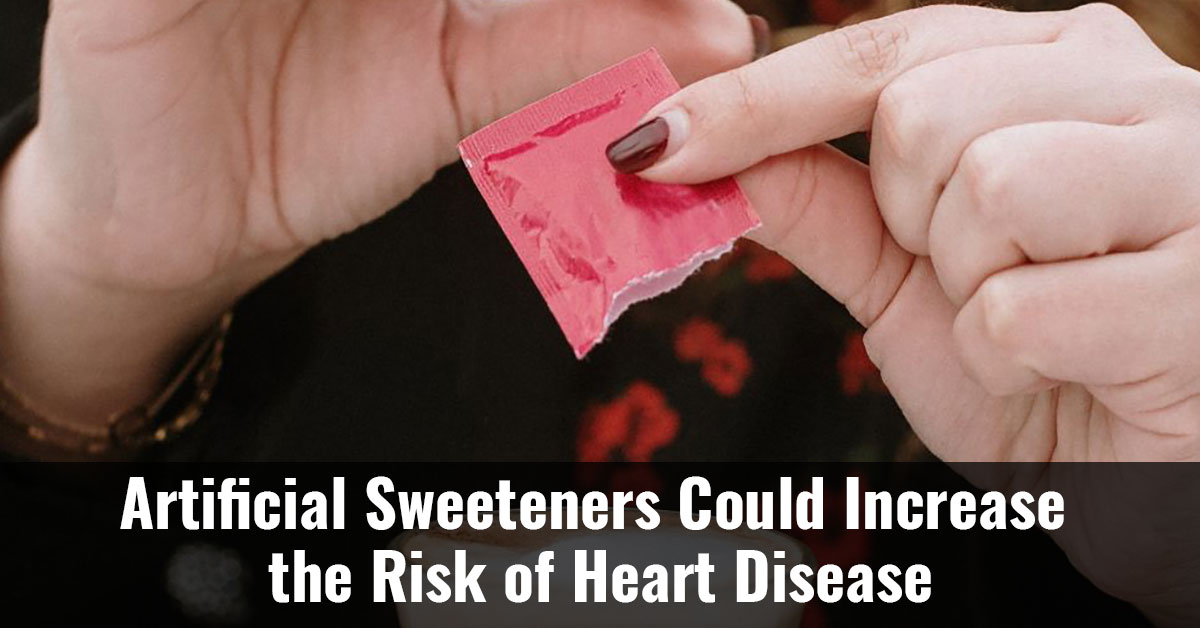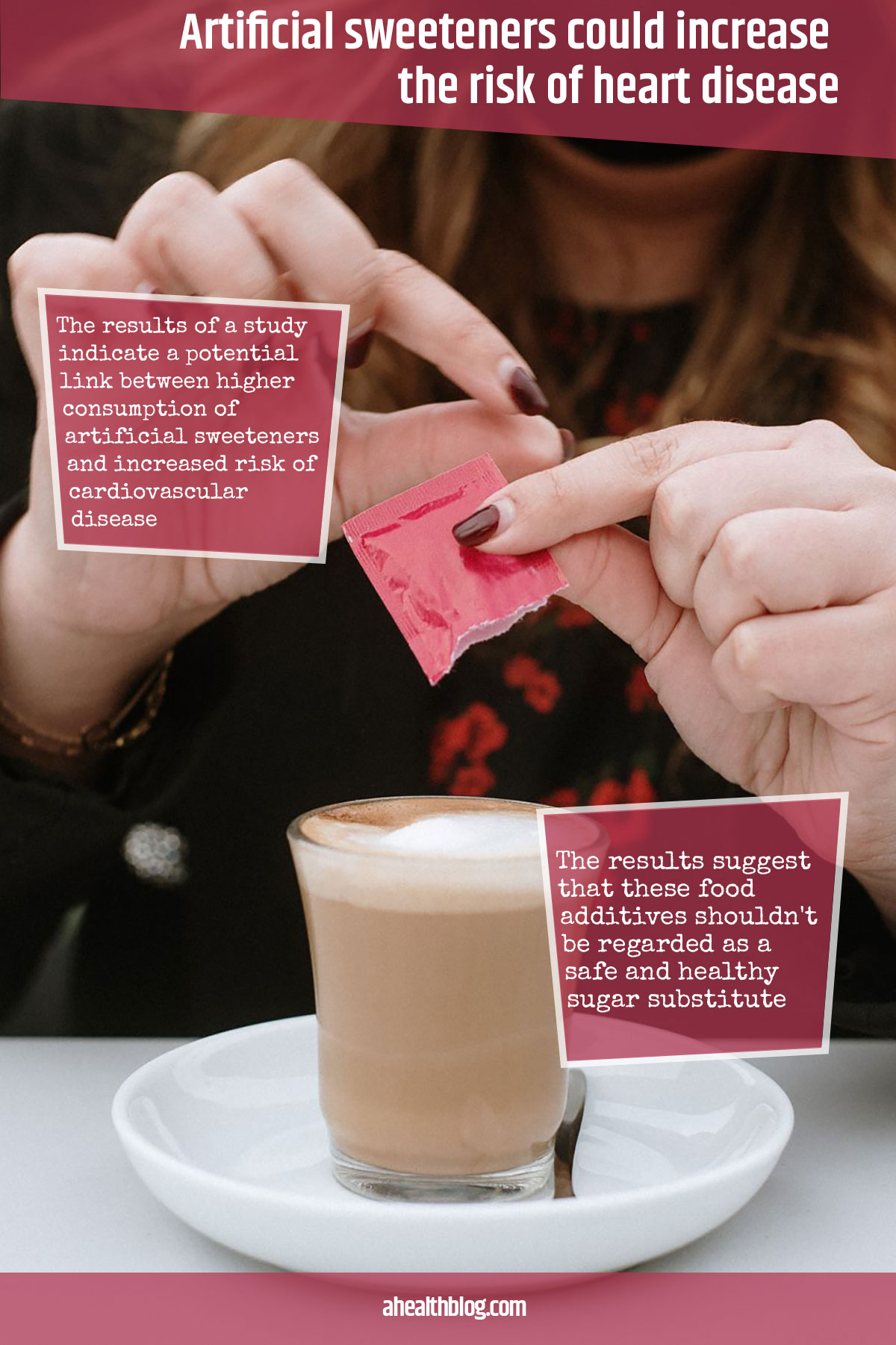The results of a study indicate a potential link between higher consumption of artificial sweeteners and increased risk of cardiovascular disease, which includes stroke and heart attack.1✅ JOURNAL REFERENCE
DOI: 10.1136/bmj-2022-071204
The results suggest that these food additives, consumed every day by countless individuals and found in many drinks and foods, shouldn’t be regarded as a safe and healthy sugar substitute.
Artificial sweeteners are used extensively as no or low-calorie sugar substitutes. They are present in many products around the world, especially in ultra-processed foods which include low-calorie readymade meals, artificially sweetened drinks, and some snacks.
Some research has associated artificially sweetened beverage consumption with weight gain, inflammation, and hypertension, but results continue to be mixed regarding the part that artificial sweeteners play in the cause of some diseases, which includes cardiovascular disease. Some observational studies have also made use of the consumption of artificially sweetened beverages as a proxy to investigate the risk of cardiovascular disease, but none have measured the overall diet consumption of artificial sweeteners.
To examine this more, the researchers used data of 103,388 individuals with an average age of 42 years from the web-based NutriNet-Santé study, which was conducted to look at nutrition and health associations.
Dietary intakes and artificial sweetener consumption were evaluated by dietary records, and a variety of potentially influential lifestyle, health, and sociodemographic factors were also considered.
Artificial sweeteners from all dietary sources such as dairy products, tabletop sweeteners, beverages, and by type which included sucralose, acesulfame potassium, and aspartame were included in the study.
Artificial sweeteners were consumed by a total of 37% of individuals, with an average of 42.46 mg consumed per day, which is equivalent to about 100 mL of diet soda or one single pack of tabletop sweetener.
The average consumption for lower and higher consumption categories was 7.46 and 77.62 mg per day for individuals consuming artificial sweeteners.
In comparison to individuals not consuming artificial sweeteners, higher consumers were more likely to be less physically active, have a higher BMI, be younger, follow a weight loss diet, and were more likely to smoke. Higher consumers also had lower total energy intake, lower carbohydrate, fiber, polyunsaturated and saturated fats, alcohol, vegetable and fruit consumption, and higher consumption of dairy products, sodium, processed and red meat, and beverages without any added sugar. The researchers however accounted for these differences.
There were 1,502 cardiovascular events recorded throughout an average follow-up period of 9 years, which included angina, stroke, heart attack, transient ischemic attack, and angioplasty. Total artificial sweetener consumption was found to be linked to increased cardiovascular disease risk. Artificial sweeteners were more specifically linked to the risk of cerebrovascular disease.
Aspartame intake was linked to an increase in the risk of cerebrovascular events, while sucralose and acesulfame potassium were linked to an increased risk of coronary heart disease.
Even though this was an observational study that can’t establish cause, this was a large study that evaluated artificial sweetener intake making use of accurate dietary data, and the results support other research linking artificial sweeteners to poor health.




